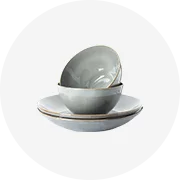
Bin Outdoor Park Street Clothing Donation Box Recycling Bin Metal Bin Donat Clothes Drop Boxes Manufacturer


















The concept of waste management has undergone significant transformation, leading to the development of various types of bins to cater to different needs. From residential to commercial spaces, the selection of an appropriate bin hinges on the nature and volume of waste it is expected to hold.
In the realm of waste disposal, the diversity of bins is vast. Outdoor bins are typically larger and equipped with wheels for ease of transport. In contrast, the compost kitchen bin is tailored for organic waste management, designed to mitigate odors and deter pests. The capacity of these receptacles can range from modest four-gallon units, ideal for personal office spaces, to robust 64-gallon containers suitable for larger waste quantities.
Modern bins are not only functional but also incorporate advanced features for enhanced user convenience. The advent of double bins facilitates waste segregation, promoting environmental sustainability. Technological advancements have ushered in an era of touch-free bins, which operate via voice commands or a simple hand gesture, epitomizing the innovative strides in waste disposal mechanisms.
The materials used in bin construction are chosen for durability and suitability to the waste type. Stainless steel bins are prevalent in kitchen and garden settings due to their capacity to handle larger waste loads and resist corrosion. The strategic design of bins ensures they are an efficient and convenient solution for waste management, capable of fitting into various spaces without hassle.
For businesses looking to streamline their waste management systems, a bin checker can be an invaluable tool to ensure the right type of bin is used for specific waste streams. Establishments that prioritize environmental responsibility may benefit from a bin list that categorizes bins for recycling, compost, and landfill waste. Moreover, the bin range available on Alibaba.com caters to a spectrum of needs, from small office bins to larger commercial models. For those in the hospitality industry, a binpro approach can be adopted to manage waste effectively and sustainably. Lastly, the exactbins system can be employed to ensure precise waste segregation, which is crucial for recycling and composting efforts.
In conclusion, the selection of a bin on Alibaba.com is a critical decision that impacts not only the cleanliness of a space but also the efficiency of waste management practices. By understanding the types, applications, features, and materials of various bins, businesses can make informed decisions that align with their operational needs and environmental goals.